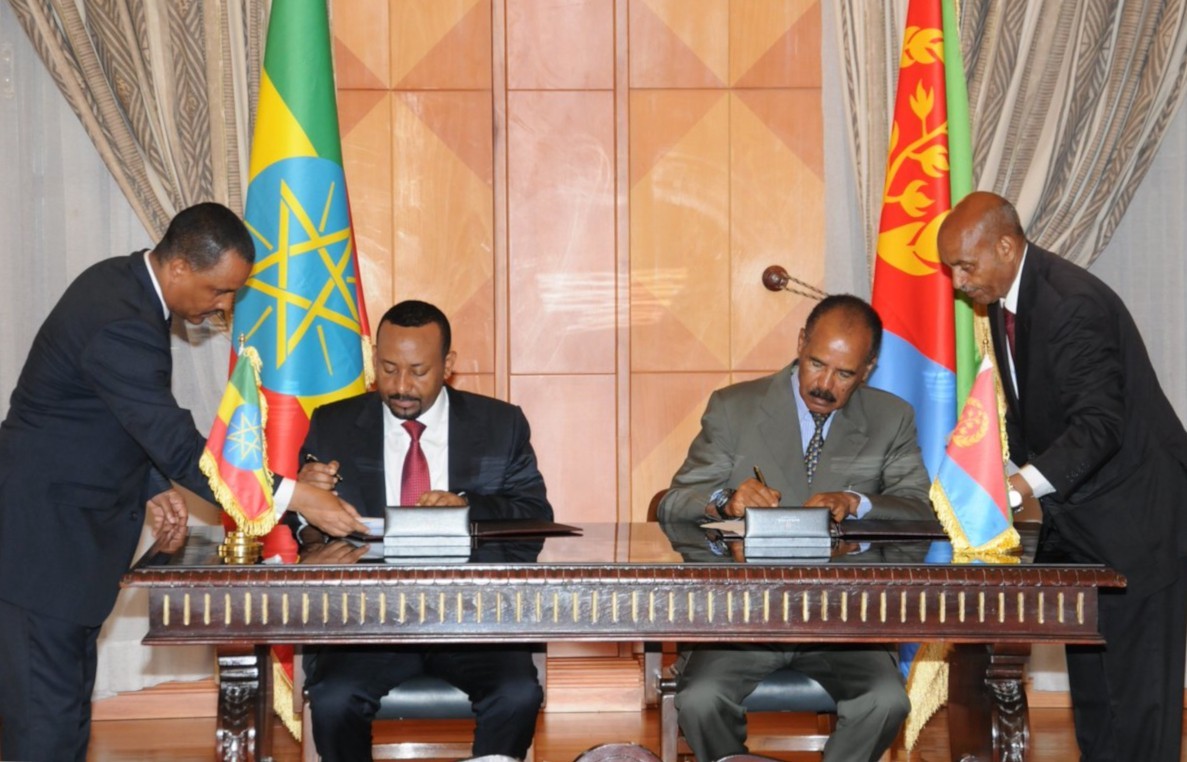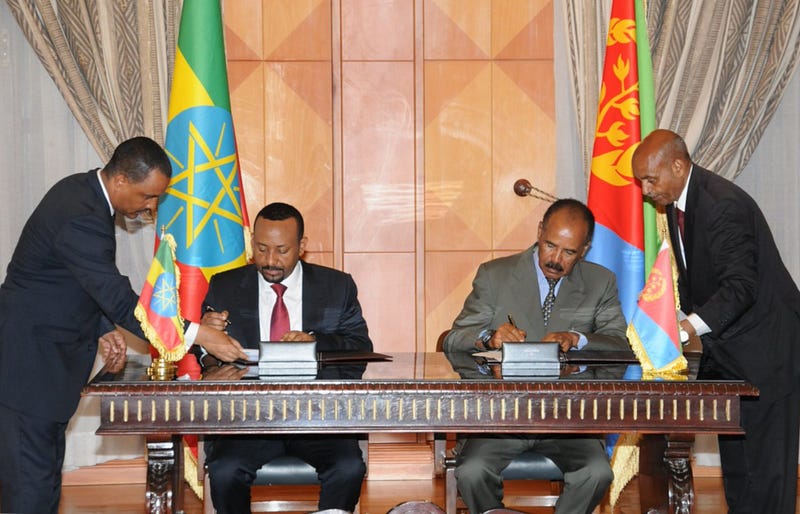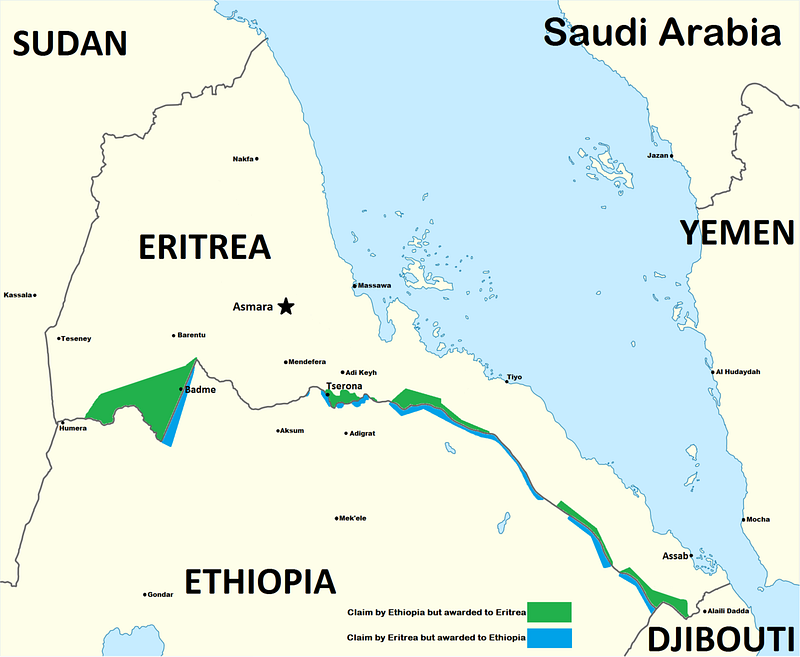
Ethiopia & Eritrea: Ushering in Peace
July 9th, 2018 marked the end of a peace summit between Ethiopia and Eritrea. A historic day for both countries, Ethiopian Prime Minister Abiy Ahmed and Eritrean President Isaias Afwerki signed the Joint Declaration of Peace and Friendship between Eritrea and Ethiopia that formally ended the conflict that has persisted between them for the past two decades. The peace agreement states that the two countries will end the state of war; resume transport, reestablish trade and communications links; restore diplomatic relations; resolve border disputes; and continue cooperation and peace.

Measures by both countries have already been taken in response to the deal, and they seem to be moving quickly to solidify their new partnership.
- The first commercial flight from Eritrea to Ethiopia in 20 years took place on July 18, reuniting separated family and friends.
- Road travel and phone lines have opened up.
- Eritrea has withdrawn its troops from the heavily militarized border with Ethiopia as a gesture of reconciliation.
- Both countries have been working on opening embassies, with Eritrea reopening its embassy in the Ethiopian capital of Addis Ababa on July 16. Both the Ethiopian Prime Minister and Eritrean President were present.
- Ethiopia appointed Redwan Hussein as the first ambassador to Eritrea since conflict with plans to reopen the Ethiopian embassy in Asmara, Eritrea soon.
- Plans have been announced to open up both economies to increased trade and commerce.
The changes have been rapid and meaningful with more to come as Ethiopia and Eritrea embark on a process of rapprochement.
So how did over 20 years of hostilities transition to peace so quickly? Most agree that is was the decisive leadership of Ethiopian Prime Minister Abiy Ahmed, who took power in April 2018. After the resignation of his predecessor, Hailemariam Desalegn, following three years of anti-government protest and unrest, Abiy Ahmed was sworn in by the Ethiopian Parliament. During his inauguration speech, Abiy Ahmed called for peace with neighboring Eritrea (as did the two Prime Ministers before him) and garnered support from much of the Ethiopian public including some opposition groups to the EPRDF ruling party.
In June 2018, just months after Abiy Ahmed took office, Ethiopia announced its intention to comply with the findings of the Ethiopia-Eritrea Boundary Commission established by the Algiers Agreement (2000) initially signed by both countries. This decision came as a surprise to the Ethiopian public, Eritrea, and much of the international community, as it reversed years of Ethiopian policy on the issue. Abiy Ahmed had kept his promise to resolve the conflict; he spoke to diplomats who had influence and interest (economically and for regional stability) in seeing peace between the two countries become a reality. Both Saudi Arabia and the United Arab Emirates were on good terms with both Ethiopia and Eritrea and played key roles in the process.
Eritrean President Isaias Afwerki, who came to power after Eritrea’s independence in 1993 and is Eritrea’s first and only president, agreed to begin talks with Ethiopia about its offer to mend their relationship. After some back and forth, Abiy Ahmed arrived in Asmara, Eritrea on July 8th, 2018 for the two day summit where they signed the historical peace agreement.

Many news agencies have been calling this agreement a win-win for both countries. Peace will lead to economic benefits for both countries as cross border trade and tourism increase. Landlocked Ethiopia will now have access to ports in the Red Sea and can expand its trade as its industries continue to grow. Eritrea can end its indefinite conscription that has caused many of its people to flee the country over the past two decades. Both countries can concentrate on advancement and development as they move away from their security-focused approach.
There are still some who are skeptical about the quick transition to peace. Both countries have a long ways to go until the deal is fully implemented, and still face internal problems that they will need to overcome like poverty, human rights issues, refugee problems and political prisoners. Nevertheless, the changes happening in Ethiopia and Eritrea will ripple throughout East Africa and beyond, and many are hopeful.
Conflict between Ethiopia and Eritrea stems from war and subsequent border conflict that left the two countries in a tense standoff for two decades. Next week’s article will discuss the history of Ethiopia-Eritrean relations in order to clarify current affairs.



